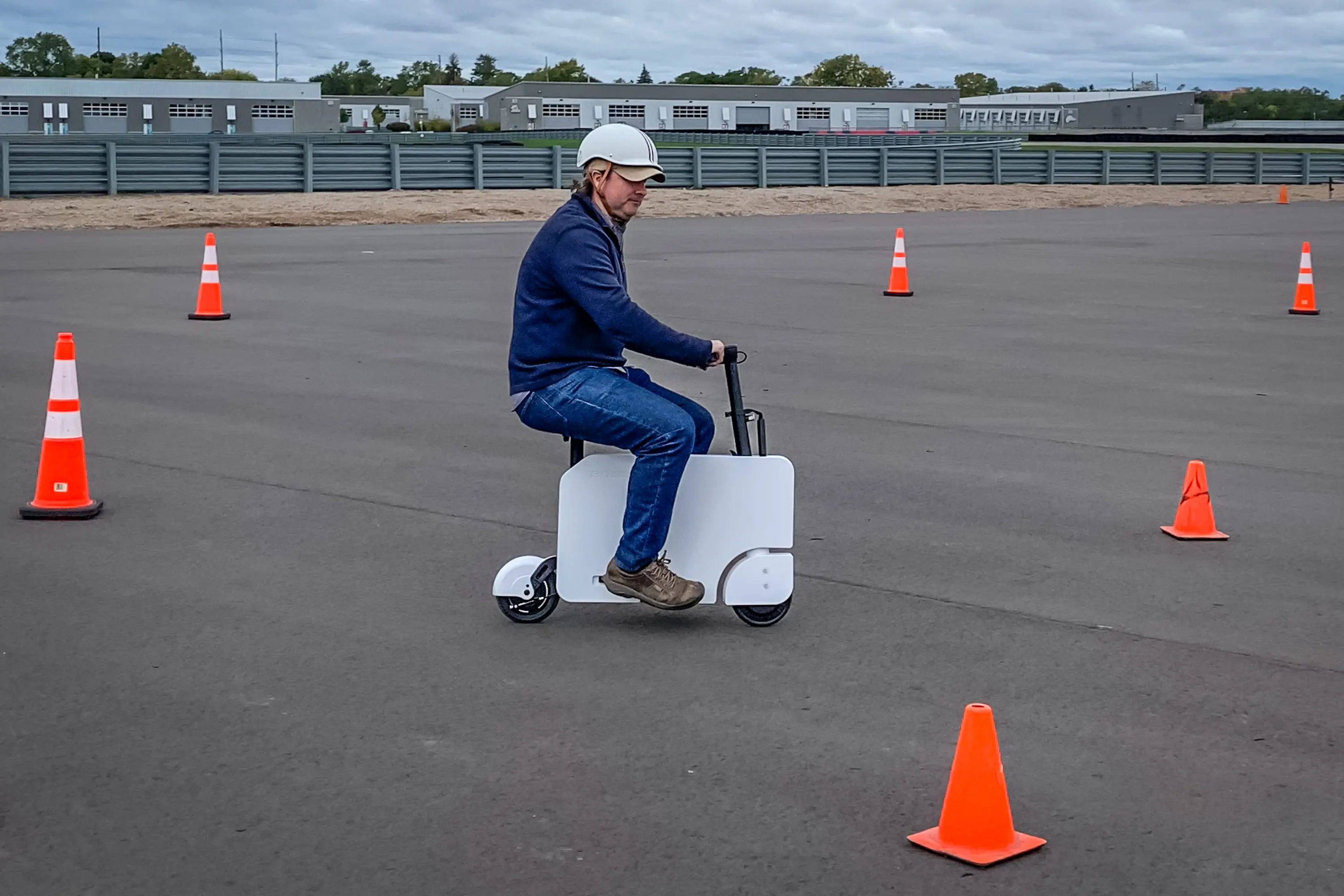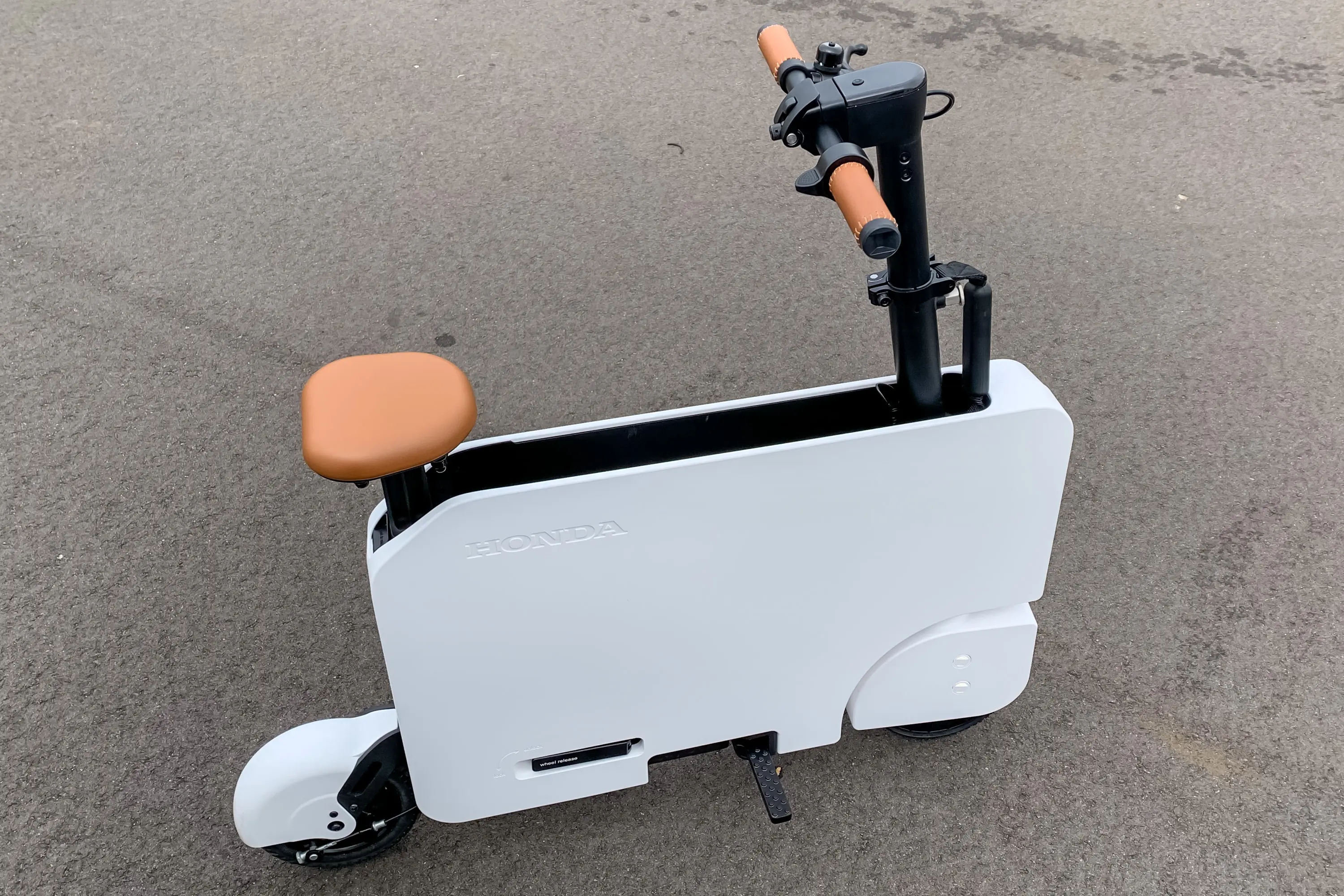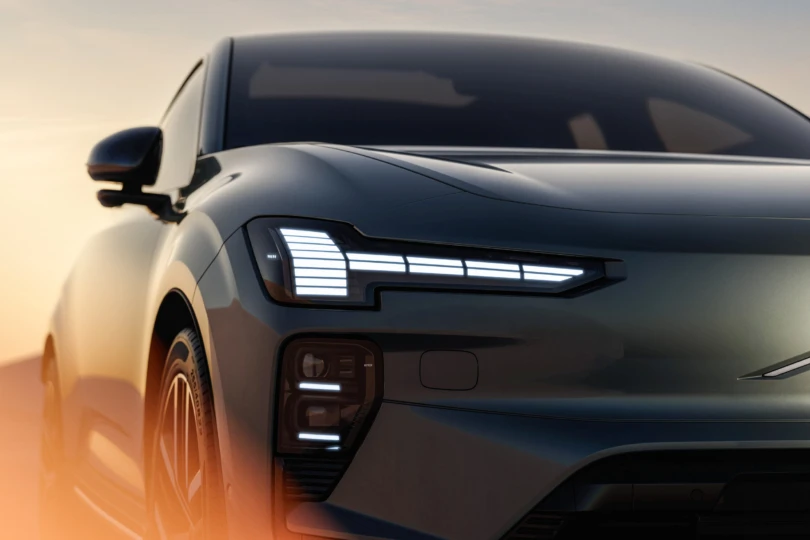Question: How often have you unfolded your transportation before setting off on a short trip to town? Never? Me neither! But our new, quickly changing world reality eschews customs and paves a wide path for novel ideas. Couple that with the proliferation of e-scooters, e-bikes, hoverboards, and the rest, and — well — just about anything is worth a try.
Hence this Honda Motocompacto. A 41-pound, carry-on-luggage-size, sit-down scooter, with a top speed of 15 mph, a range of up to 12 miles, and a built-in strap handle to conveniently carry it around when you do not need it to carry you around.
Something so completely outside of my personal comfort zone from a company that builds my favorite hot hatch (2024 Acura Integra Type S) proved too intriguing to ignore. I eagerly accepted an invitation to head north of Detroit to a race track parking lot and test this new mobile suitcase out.
In short: Honda built a clever new way to approach the last-mile-mobility concept. While it takes some practice to assemble, the operation proved intuitive and easy. The controls are well laid out, and the simplicity and smoothness of travel is welcome. For dense urban areas, the Motocompacto offers a lot of strengths. And it’s cool!
- Vehicle: 0-door, 1-seat, seated e-scooter
- Weight: 41.3 lbs.
- Dimensions Folded: 29.2" L, 3.7" W, 21.1" H, 29.2" wheelbase
- Dimensions Unfolded: (length, width, height, wheelbase) 38.1" L, 17.2" W, 35.0" H, 29.2" wheelbase
- Cargo: < 1 cu.-ft.
- Motor: electric, permanent magnet
- HP/ Torque: 0.7 (peak), 0.3 (sustained)/12 lb.-ft.
- Transmission/Driven wheels: direct/front-wheel-drive
- Battery: 36-volt, 6.8 Ah, lithium-ion
- Range: up to 12 miles
Pros
- Compact design
- Impressively lightweight
- Easy to use
- Easy to charge
Cons
- Some parts are finicky to assemble and disassemble
- No height adjustment for handle bars or seat
- Minimal theft deterrence
Honda Motocompacto Review
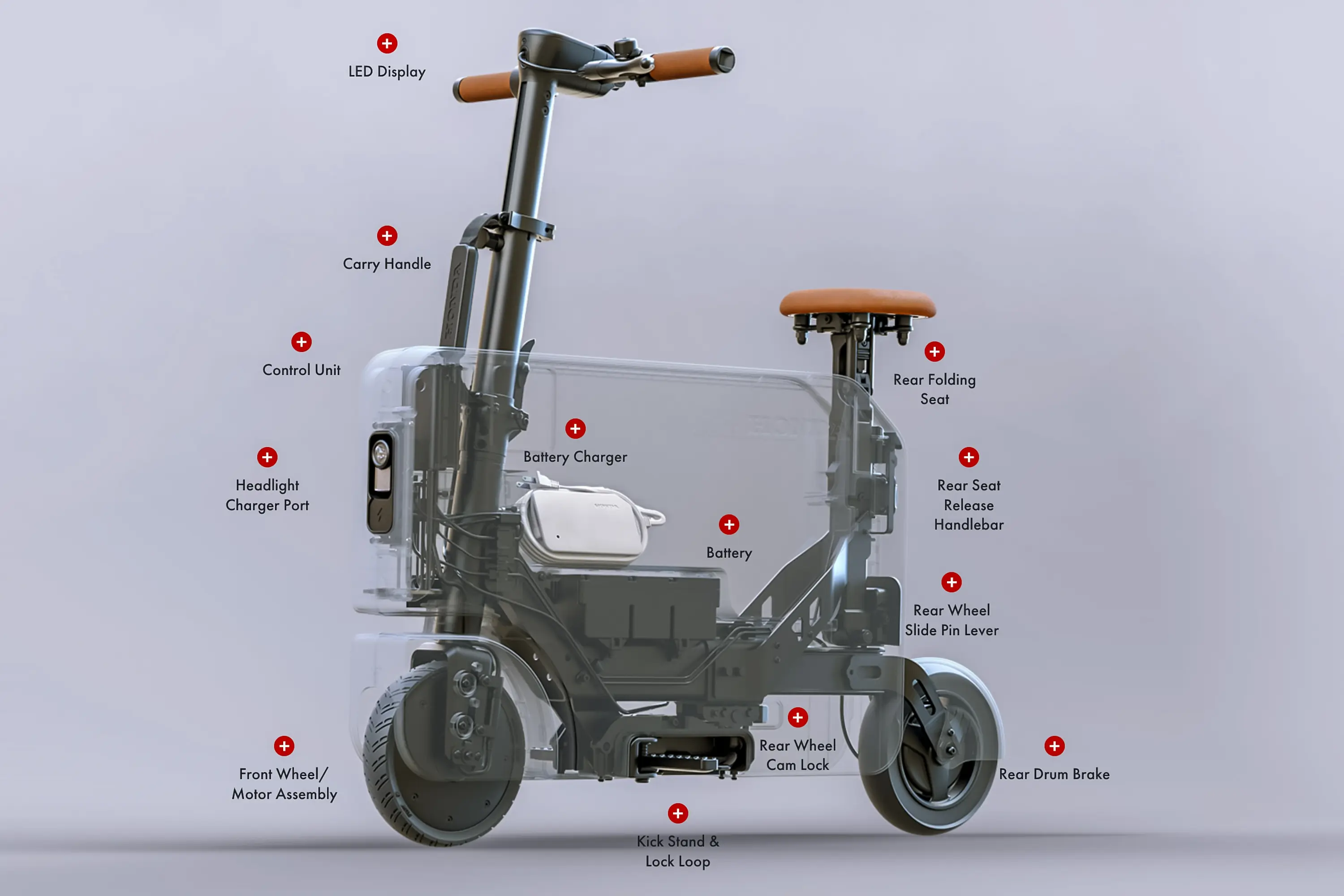
What Makes It Motocompacto?
To know what the Motocompacto is, you first need to understand what it isn’t. As far as official classifications are concerned, it is not a motor vehicle. That means to own and operate one, you do not need any kind of license. And, you’re not required to register the Motocompacto to use it. Because Honda capped its top speed at 15 mph, it avoids all that malarky. Effectively, it’s a toy.
A seated-e-scooter toy. Strong enough for “kids” that weigh up to 265 pounds. One with a small, permanent magnet electric motor baked into the front wheel assembly that delivers brief spurts of 0.7 horsepower (0.3 horsepower sustained) and 12 pound-feet of torque. Conversely, the rear wheel carries a single drum brake inside.
Speaking of, Honda used an airless, semi-solid rubber to make up the tires. No air pressure to worry about. A heat-treated, welded aluminum frame holds it together. And, a 36V, 6.8Ah Samsung lithium-ion battery, stored inside, supplies the energy. Honda then wrapped all that in a white molded plastic casing. It also has handlebars, a seat, and a charging cable for the battery.
Inspired by the Motocompo from the early ’80s, which was a two-stroke, 49cc gasoline-powered foldable scooter that Honda only sold in Japan. The Motocompacto puts a modern, electrified twist on the concept.
It folds up to look like a large computer monitor with wheels on the bottom and a strap handle on top. It weighs 41 pounds.
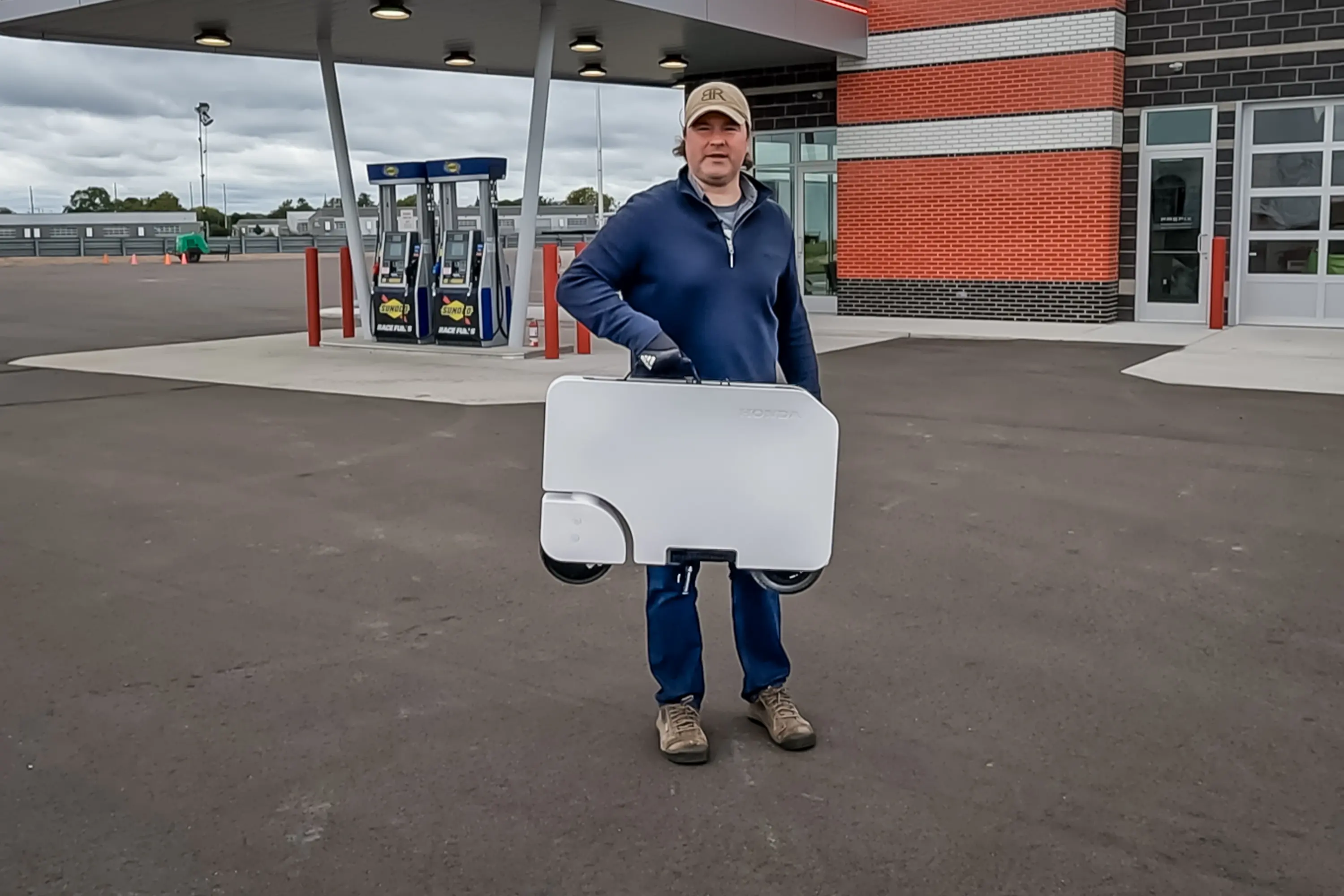
Assembly/Disassembly
The folding and unfolding bit does take work. There are several steps. Starting with it folded up, first release the kickstand to give the Motocompacto balance — that kickstand includes a metal ring for a bike lock, by the way. Then pop out the foot pegs to give your feet a resting spot on the ride. Both of these steps are easy and straightforward.
Things get trickier for the rear wheel. You first need to release a locking lever and place it in the correct position to free the rear wheel assembly to slide out. It takes a bit of fussing at first. I’m sure — at least hope — it becomes second nature with practice.
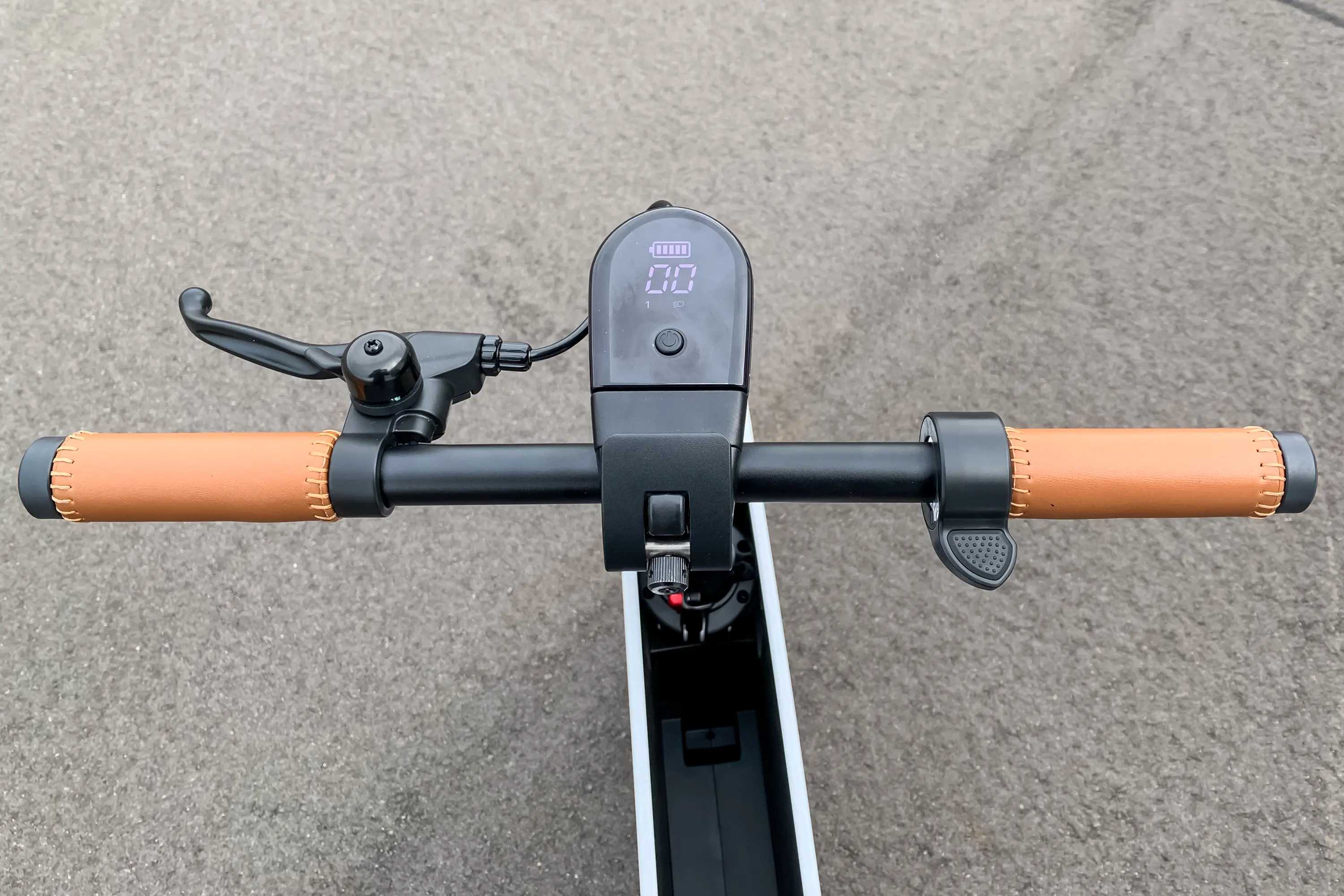



Due to tight packaging, the handlebars come out next and require several steps all to themselves. First pull the main support bar out of the case, rotate on a hinge, and lock that in place. Then, extend the same bar several inches, which requires its own release mechanism. Finally, rotate the handlebars themselves ninety degrees and lock them in place. Each fold has its own locking attach point.
Finally, the seat itself is free to come out. Its big square metal bracket slides into a carrier and pins in place. But first, the seat cushion needs to articulate into position and lock into place.
Disassembly reverses that process in that specific order, as to fit everything in place inside the case. Frankly, it’s a cumbersome process, the first time around at least.
On the other hand, all the equipment fitting so tightly allows its lighter weight and size. Furthermore, Honda incorporated redundant latch mechanisms at every fold point to ensure that nothing accidentally comes loose mid-ride. Finally, sensors are built into the Motocompacto to prevent any power making it to the electric motor, unless all aforementioned points are in the correct position.
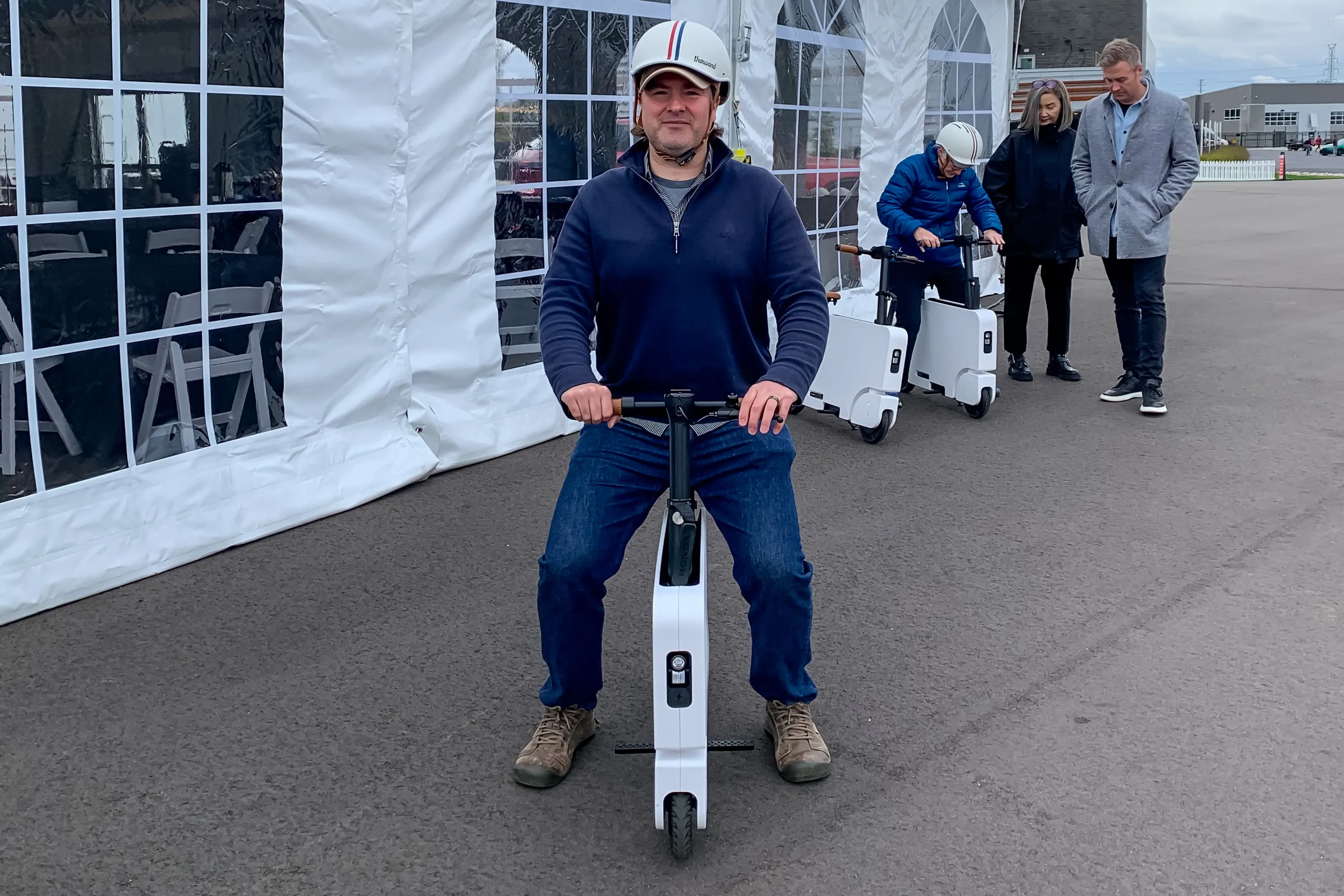



Smooth Operator
Once assembled, the Motocompacto operates easily. You get a small screen at the center of the handlebars with a single button. One firm press turns it on, which starts with a quick boot-up process. Once on, a quick press turns on and off the headlight up front — it also has a taillight that is always on and also acts as the brake light.
Two quick presses switchs the Motocompacto between its two drive modes. Yes, even this e-scooter has drive modes. Mode 1 is the default.
In mode 1, you need to push the scooter up to 1 mph before the electric motor will engage. It also limits the top speed to 10 mph. Mode 2, on the other hand, will power away from zero speed, accelerate faster, and reach its true top speed — 15 mph.
You accelerate with a thumb-press dial on the right side of the handlebar and brake with a bicycle-like grab handle on the left side. There’s also a cute — almost adorable — bell on the left side to ring.
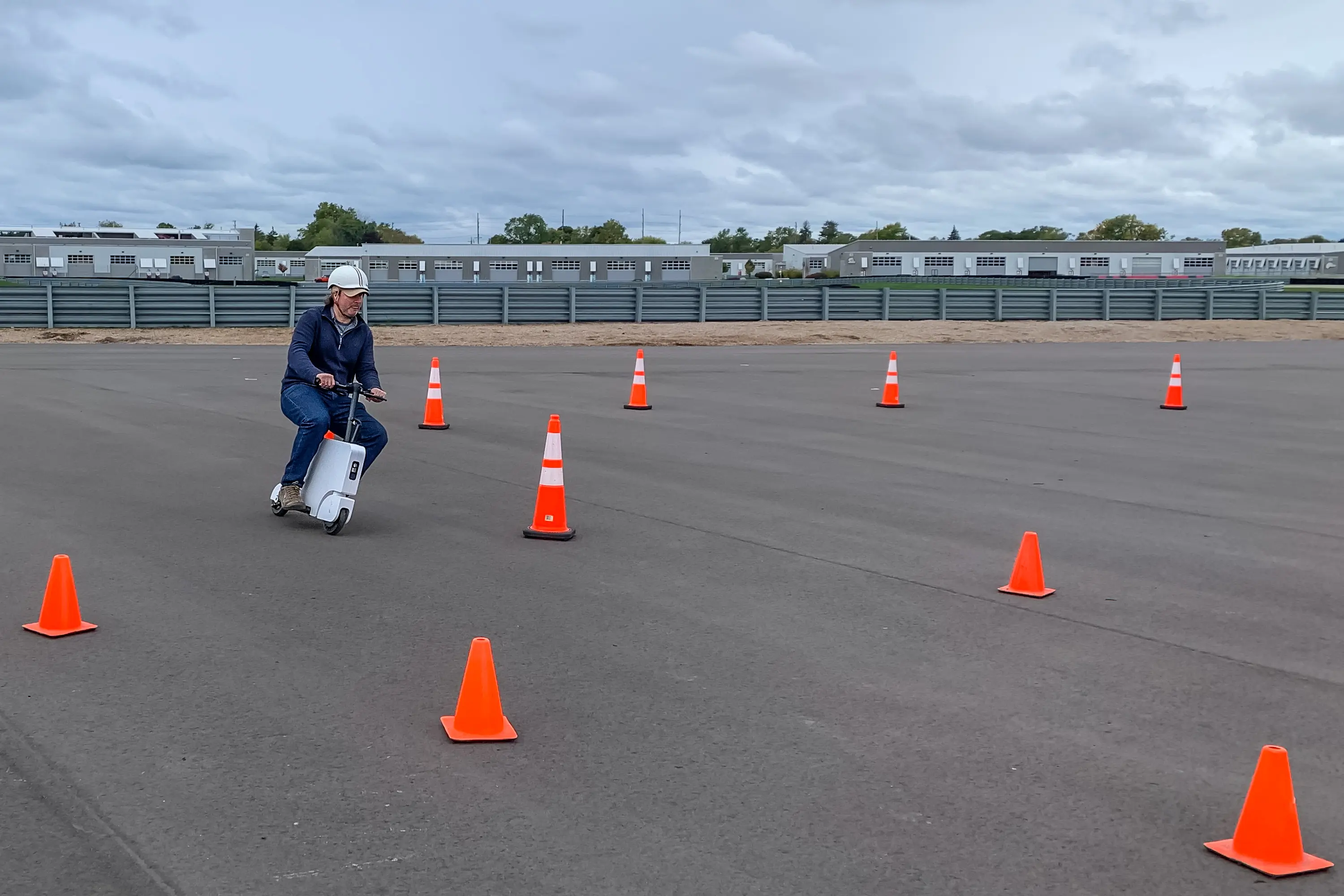



Let’s Ride
With one foot resting on a peg, the other slides the kickstand up and provides balance as you effortlessly motor off, in Mode 2 of course. Honda says the Motocompacto will reach 15 mph from rest in 7 seconds. Certainly not a mind-bending pull here, but perfectly satisfactory for moving about.
It’s easy to get comfortable on the little seat with your feet on the pegs, just merrily scooting along. I stand 5’11” tall (181 centimeters) and did not feel cramped on the nonadjustable seat and handlebar configuration, but taller folks will need to hunch over a bit with severely bent knees to ride it. Or maybe wear roller skates.
Once you’re moving, it feels just like a bike. It leans as you corner and feels much more comfortable transitioning from left to right if you shift your weight about as it happens. Or corner a bit more gingerly and keep still.




The Motocompacto will underwhelm thrill seekers, but all others will enjoy it. The accelerator dial proved easy to modulate for smooth speed adjustments. And, on most occasions, the brake is not necessary; you calmly coast to a halt. But it’s nice insurance to have. In a word, the Motocompacto is effortless.
And once finished, simply hold the power button down for a few seconds to turn it all off. No keys, ignition, or anything of the sort.
But there is a phone app. With it, adjust personal settings, change lighting, and the drive modes. You can also preload preferences into the scooter itself. The app keeps tabs on battery life, too. And for DIY folks, it includes service instructions and an easy way to order parts. Think wearable items like tires and brakes.
Honda Motocompacto Review: Summary
Speaking of phones, if you look at retail prices, the Motocompacto costs less than one. Honda wants $995 in exchange for its latest electric vehicle. You can buy it as a dealer accessory to your new Honda automobile, and just throw it in the cargo area. Or purchase directly from motocompacto.honda.com. It’s available for sale right now.
That cost includes the proprietary charge cable, which takes about 3.5 hours to completely replenish a dead Motocompacto battery. And, the charge cable fits inside the casing while you’re riding. As would a couple of other small items.
For such a clever and fresh take on an over-40-year-old idea, it seems a bargain. After all, for the money you get alternative, convenient, and portable transportation that relieves a lot of stress of where to park. Or potentially bypasses the need for your car altogether.
Automobiles — heck, transportation as a whole — is changing fast. And clever mobility solutions like Honda’s Motocompacto give me hope that we can adapt to this new landscape without too much pain. Besides, who doesn’t love toys?
